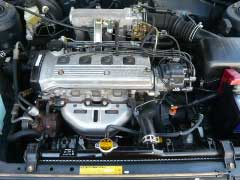What Causes a Car to Overheat? - Vol.131
Whether you have a new car or an older model vehicle, you may find a time when you are faced with your car overheating. If your car has overheated, or you just want to make sure that you are taking precautions to prevent overheating, it is important to understand what causes a car to overheat. Though no list is complete of why your car may overheat, it is important to understand some of the main causes for a car to overheat.

Radiator
The radiator's principle job is to cool the vehicle's engine. If the radiator is not doing its job, your car may be prone to overheating. One of the first things you will want to check if your car overheats is the radiator. There are several reasons that your radiator can cause your vehicle to overheat. First, check to ensure that the radiator seal cap is not cracked, that your seal gasket is not broken or missing, and that the radiator grill is not restricted or dirty. If the radiator seal cap is cracked or not installed correctly, the proper pressure cannot be maintained, causing your car to overheat. A broken seal gasket or dirty or restricted radiator grill can also cause your engine to overheat.
Water Pump
Another common engine component that can lead to your car overheating is the water pump. The water pump allows proper engine coolant to flow to the engine. If your water pump is not functioning or working properly, the coolant cannot reach the engine thus causing the vehicle to overheat. It is important to inspect your water pump regularly to ensure that it is functioning properly and has not become defective.
Coolant System Belts
Your vehicle's coolant system, which consists of the radiator, water pump, and numerous hoses and seals, provides smooth circulation of the engine coolant. If there are leaks at any point in the coolant system, the vehicle may overheat due to an inadequate amount of coolant circulating through the engine. You will want to check the antifreeze and water levels in your coolant system regularly. If they are low or seem to get low quickly, you will want to inspect the coolant system seals to ensure there are no leaks. In addition, when changing the coolant, it is important to bleed the air from the coolant line. If you do not bleed all the air from the coolant system, air pockets can develop in the line causing hot spots that could lead to overheating.
Thermostat
Your thermostat is very important to the proper functioning of your engine. A faulty thermostat, or the installation of the wrong thermostat, can cause your engine to overheat. It is important to check your thermostat regularly to ensure it is performing properly.
Oil Level
A low oil level can cause your engine to overheat as well. If your car overheats, you may want to check your oil level and make sure it is filled to the proper level. If you have not changed your oil within the recommended time, you may want to consider an oil change. If you have recently changed your oil, and your oil level is low causing your car to overheat, you may have an oil leak, which is cause for concern and should be fixed immediately.
Other causes
If you have broken or cracked fan blades, you may find that overheating is possible. Electric fan blades must be running properly. A blown fuse, bad motor, or bad thermal sensor can all be causes for an engine to overheat.
There are many reasons that your car may overheat. If you take precautions and inspect your car regularly, you can help prevent overheating and keep your vehicle running smoothly and safely